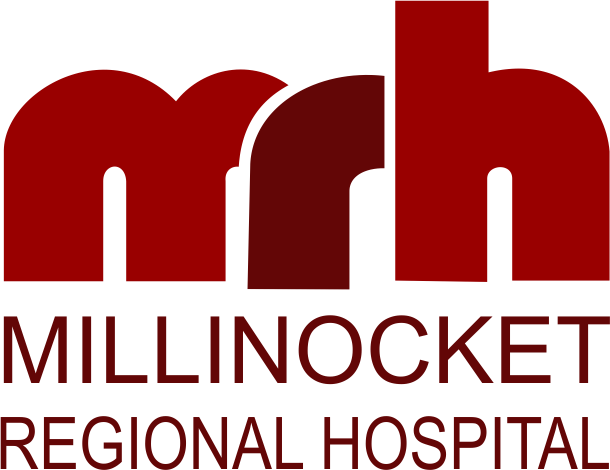Governor thanks MRH staff for efforts during Covid-19 pandemic
By Shelley Farrington Lincoln News • September 8, 2022
MILLINOCKET – Gov. Janet Mills recently visited Millinocket Regional Hospital as part of a tour of the Katahdin region. Mills’ office informed officials she wanted to thank hospital workers and first responders for their heroic efforts during the Covid-19 pandemic.
MRH was a leader in providing education, testing and vaccinations in the region. According to MRH officials, those efforts were responsible for vaccinating over half of Katahdin region residents.
“Thanks to every one of you for all you’ve done these last few years,” Gov. Mills told hospital employees. “Maine has some of the highest vaccination rates and the lowest death rates, and that is thanks to all of you.”
MRH CEO Dr. Robert Peterson named a number of staff who were crucial to this effort including the walk-in care staff who did the majority of the COVID testing and were vital to keeping the virus out of the hospital. MRH was the first hospital in the state to mandate vaccinations for healthcare workers and with very good reason.
“If just one provider, one nurse or one housekeeper gets sick, it inhibits our ability to provide care,” Peterson explained. “We can’t live up to our mission if we are sick ourselves. We needed to stay well to care for our community.”
Northern Light Health and Maine Med quickly followed MRH’s lead, as did a mandate by the governor’s office.
Peterson acknowledged that the vaccine mandate was not an easy decision but it was the right one.
“Sometimes you have to make uncomfortable decisions. That’s leadership,” Peterson said.
As a result the MRH staff was 100 percent vaccinated by last September ahead of the October 2021 deadline. Gov. Mills commended staff for being dedicated to the process of reaching 100 percent vaccination and leading the charge on healthcare worker vaccinations in Maine.
MRH conducted several vaccination clinics starting with first doses for adults, children’s doses and booster shots. Officials recently announced they will be offering Omicron variant boosters this fall.
Staying on top of the vaccination and booster shot availability was a job in itself. Several staff worked long hours to acquire the needed vaccines and then working on the logistics of getting as many shots in as many arms as possible.
Peterson acknowledged a core group of key staff, led by Shelly Drew, RN, vice president of compliance and Todd Phillips, RN, MPH, infection preventionist, who attended every clinic and ensured they ran smoothly. Other members of the core group included Lindsay Lee, RN, director of emergency services, Jane Danforth, Mike Scrooc, Katie Mackin, director of marketing; retired MRH employees Judy Knowlton, RN, Bruce Rioux, CRNA; nursing students and over 100 other employees and community members who chipped in and volunteered their time for this effort.
“Todd and Shelly were continuously working to stay one step ahead, advocating for more vaccines, and putting the wellbeing of our community members at the forefront of every decision,” said Mackin. “There were many barriers at times, but that never stopped them. It was less a matter of ‘if’ we could get vaccines than ‘how’ were we going to get vaccines.”
Phillips jumped through every hoop necessary to obtain the vaccine even if it meant he had to drive across the state to pick it up at another location, Mackin added.
Lee pointed out that equitable distribution was one of the primary goals of the vaccination clinics. Giving the vaccinations at no cost meant that finances would not be a barrier for those wishing to be vaccinated.
It was noted that the availability and efficiency of the MRH clinics attracted citizens from outside the region as well. In fact, a family member of Gov. Mills’s staff benefitted from a MRH clinic because they couldn’t access a vaccine closer to home.
The Katahdin region community took its responsibility to protect themselves and their community seriously and that helped MRH staff during some of the most difficult times. The outpouring of support from employees, retired employees and the general public was essential, employees said.
“Being in the ER day in and day out through this pandemic has not been easy, but the genuine appreciation from community members expressed during the vaccination clinics is what has kept me going,” Lee said.
Education was essential in getting the public vaccinated and Phillips made himself available to anyone or any group who needed more information. He and Mackin also took to social media and the Lincoln News/Katahdin Region News to get the word out.
Gov. Mills lauded Phillips for his efforts to inform citizens and encourage vaccination saying “the pains you took to educate around individual beliefs and fears,” were commendable.
Peterson said the pandemic also brought to light some shortfalls of MRH as a facility.
“There was no playbook” for the COVID pandemic, Peterson said, but we learned valuable lessons.
The COVID pandemic demonstrated the importance of critical access hospitals across the country, Peterson acknowledged. Without MRH – a small, critical access hospital, the outcome for the region could have been very different.
Peterson went on to tell Gov. Mills that the pandemic brought to light some improvements that need to be made to the physical and operational infrastructure of the hospital; i.e. increasing the size and capability of our emergency department as well as other areas within the facility that need to be enhanced.
Gov. Mills acknowledged the importance of MRH- not just because of the work done through the Covid pandemic- but for promoting the health and wellbeing of the community and those recreating in the area.
